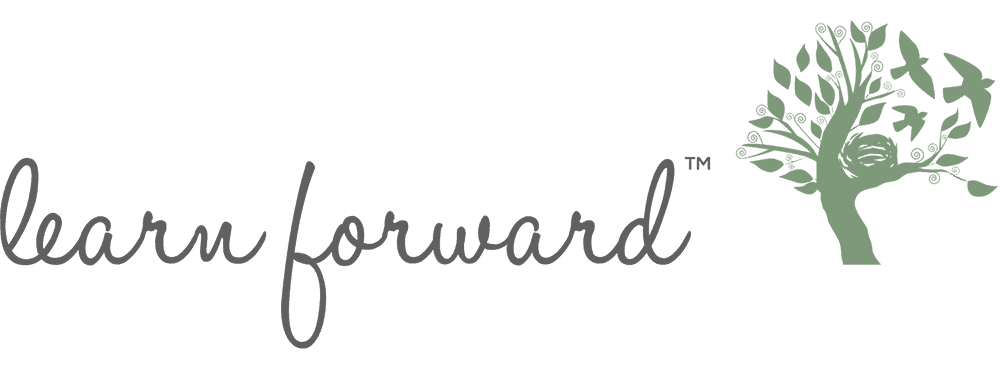What matters most is moving from a ‘believer’ to a ‘builder’ for the sake of equity!
The 2021 Learn Forward™ standout EdLeadership book: Dolly Chugh’s The Person You Mean to Be.
Why this book? Because I am a good-ish person.
‘Good-ish’ means, unfortunately, sometimes I believe in equity, but I don’t act. Then, when I do act, it is inadequate. Plus, I make mistakes.
So, I love how Chugh advocates for us to keep stepping forward for equity in ‘good-ish’ ways.
The book is an exhortation to keep trying, imperfectly, to make a difference for equity, diversity, and inclusion.
The call is for us all in 2022!
First, I’m so grateful to the BLBS Mastermind for including this book in their readings and for my Mastermind for Women group for journeying with me in meaning-making.
Secondly, my personal ‘builder’ experience this year includes stepping forward to co-create a university course around Indigenous Education with Indigenous Scholar, Dr. Tina Fraser. As a white settler, it was one of the most vulnerable experiences of my year. I definitely had to embrace the principles in Chugh’s text, as I struggled to ‘teach,’ as the creation of an ethical space.
Because I started from a place of privilege, the work was riddled with landmines. My lifetime of experiences as an educator did not serve me in this context. Plus, the news of mass graves of children reported in 2021 made raw emotion understandable. I stepped forward, but without the lived experiences many of my students felt were essential.
Honestly, sometimes I wasn’t the person I meant to be. I was only good-ish.
Indeed, I share my humbling experience as an opportunity to examine the complex and imperfect places of stepping forward for anti-racism and reconciliation.
So, as I close this year, Chugh’s text is still ringing true. Here are four big ideas…
Step forward as a Learner
Taking risks can result in ‘self-threat.’ It’s real. Human beings get defensive really easily.
The moment of self-threat is one “where our identity is being challenged or dismissed. Just as moments of physical threat trigger a hyperfocus on self-preservation, moments of self-threat do the same” (pg 4).
Moreover, you can easily fall into self-threat preservation. I did.
The only way out, Chugh writes, is grace. “Grace is the antidote for self-threat” (pg 137). Essentially, taking risks always requires grace and self-compassion.
Centering Voices of Partners
Secondly, Chugh encourages us to center the voices of our partners in racial work.
One of the most generous experiences of our class term was the voice of Indigenous Educator and doctoral candidate, Desiree Marshall-Peer. She is a Provincial leader in Indigenous education and her story was a gift.
Her voice was more than a journal article or a book excerpt. Her lived experiences made injustice come alive.
Most profoundly, she spoke of her own journey from hiding to identifying as an Indigenous person and an Indigenous educator.
“I hid my moccasins under the bed when friends came over,” confessed Marshall-Peer.
Her truth was a poignant metaphor for the ‘hiding’ of generations of Indigenous peoples.
Marshall-Peer shared about reclaiming her Indigenous heritage over time.
She called for allies because equity-work is too heavy a burden on the small number of Indigenous educators. Truth and Reconciliation will require us all. Chugh writes the same.
These messages could be from any vulnerable or justice-seeking population.
- Will you see me?
- Do you hear me?
- How will I matter in your educational system?

It’s not a Meritocracy
My work in East Africa taught me this. Traveling there 15 times over the last dozen years illustrated to me that I ‘won the lottery’ because I’m from North America. Of course, I don’t mean we’re perfect, but rather, it’s the only difference between a life of privilege and one of poverty.
However, privilege, opportunity, and wealth have more to do with geography and zip code.
Additionally, we must disrupt the bootstrap narrative. The notion that if people just worked harder, they would be more successful is untrue. Almost everyone is working hard. Therefore, why is there still extreme poverty, racial inequities, or global injustice?
Because headwinds are the systemic, invisible, group-level differences that make life harder for some people, but not all people. For people of color, in the U.S. and Canada, the headwinds have blown against them for generations.
So…
Leverage Your Ordinary Privilege
By “ordinary,” Chugh means you don’t think about your standing because the society in which we live is structured around your identity. If you are white, cisgender, middle class, able-bodied, and educated…you have ‘ordinary privilege.’
Those who have different identities are reminded of them day-in and day-out.
To counteract, Chugh recommends leveraging ordinary privilege in these small but intentional ways:
- Acknowledging the cultural ‘smog’ of racism,
- asking curious questions of those who are different from us, and
- being willing to stand in small but intentional ways for people of the lowest positions or castes.
In conclusion, Chugh’s encouragement invites us all to act today,
“If there is no right way, then each of us can find our own way to be builders and to support builders. The only wrong way is to settle for only being believers.”
~Dolly Chugh, The Person You Mean to Be
